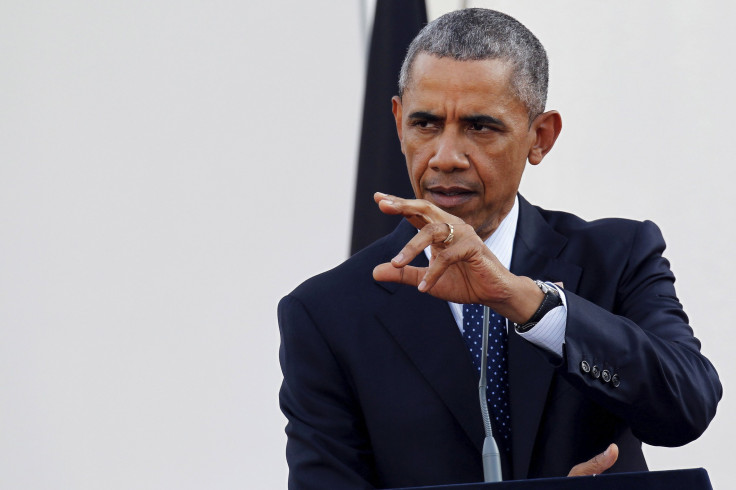Obama Kenya Visit 2015: New Ivory Restrictions, Bans Announced For US To Curtail Wildlife Poaching

The U.S. will begin taking what the White House termed “urgently needed steps” to tighten restrictions on the sale of ivory from African elephants, President Barack Obama announced Saturday. The announcement came during the president’s trip to Kenya, where he spoke at a joint press conference in Nairobi with Kenyan President Uhuru Kenyatta.
Obama said the restrictions would eliminate the market for illegal ivory in the U.S. “I can announce that we’re proposing a new rule that bans the sale of virtually all ivory across state lines,” the Associated Press quoted the president as saying.
The proposed U.S. Fish and Wildlife Service rule would also further restrict commercial trade in ivory from African elephants. But it would provide limited exceptions for interstate sales of certain items, namely pre-existing musical instruments, furniture pieces and firearms that contain fewer than 200 grams of ivory.
Humane Society of the United States CEO and President Wayne Pacelle praised Obama’s action in a blog post Saturday. “We’ve been calling for U.S. leadership to combat the illicit trade in ivory, and we are glad that the president is using the bully pulpit to draw attention to this crisis and to take a critical step toward strengthening U.S. policy,” Pacelle wrote. “According to one estimate, the United States is the world’s second-largest market for ivory product sales, behind China, and we cannot claim the mantle of leadership on this issue without taking bold action commensurate with the crisis that’s unfolded.”
The rule would follow previously instituted restrictions adopted by Obama in the attempt to stopping the flow of ivory into the U.S. An estimated 100,000 elephants were killed for their ivory between 2010 and 2012, and East African countries have seen serious declines in their elephant populations. Tanzania lost more than one-half of its elephants in the past six years because of ivory poaching and migration, with the number dropping 60 percent, to 43,529 in 2014 from 110,000 in 2009, according to media reports. In Mozambique, 48 percent of all the nation’s elephants have been killed by poachers in the past five years.
Kenyatta has pledged to fight poaching. The Kenyan president signed up last week as a founding member of the pan-African Giants Club, a group dedicated to combating illegal wildlife trading. He also committed to supporting the Elephant Protection Initiative, launched in London in February 2014: It is backed by dozens of African countries working to fight the growing ivory trade.
© Copyright IBTimes 2025. All rights reserved.






















